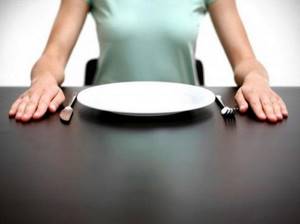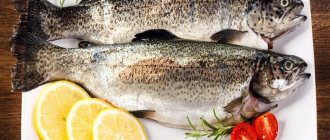There are different methods of fasting or voluntary refusal of food. They promote powerful cleansing of the body, as well as effective weight loss. Some people prefer short-term intermittent fasting, while there are people who are not afraid of long fasts.
With the right approach, you can easily endure three weeks of food restrictions, achieving the desired results. Fasting for 21 days is an excellent technique that is suitable for almost everyone.
The principle of prolonged hunger
Therapeutic three-week fasting is a risky method for every organism, due to the fact that a long period of stay without food does not exclude irreversible consequences if the conditions are not met correctly. On the third day of the hunger strike, due to a lack of energy coming from outside in the form of food, the body begins to use “delayed food reserves.”
The presented method of abstaining from food helps to get rid of long-standing chronic diseases, cleanse the toxins that have accumulated and poison the body, restore new strength and youth, but with strict observance and fulfillment of the conditions of the hunger strike in order to avoid irreversible consequences. Water fasting for 21 days is practiced twice a year.
What results can be achieved?
Numerous medical studies and practical applications have proven the effectiveness of a therapeutic water diet. If all recommendations are followed, a person can:
- get rid of numerous chronic diseases;
- cleanse the body of waste, toxins, dead cells and other harmful elements;
- remove liquid;
- reduce body weight without harm to health;
- normalize the psychological background, get rid of the state of prolonged depression;
- increase activity and performance.
Preparing for fasting
Despite the universal availability of the fasting “experiment” and its effectiveness, the rules of preparation must be strictly observed. The main and mandatory condition is to be examined by a doctor before starting a hunger strike. It is easier for a person living alone to overcome a hunger strike, but for family people it is necessary to agree with their family about a separate food ration and support from them.
It makes no sense to succumb to a breakdown and refuse to eat, because the body needs to prepare. A couple of days before the start, give up fatty and fried, sweet and baked foods, pastries and soda, coffee, and even more so alcohol and smoking. Drink two liters of water daily. Fasting for 21 days on water begins with some steps that mark a kind of entrance:
- A couple of days before the start, take a light meal in the form of cereals and low-fat vegetable soups, eat fruits and give up the junk food listed above;
- You can eat before the start, in the morning until the afternoon snack, but you don’t need to have dinner, since the very next day will be a fasting day. 30-40 minutes before bedtime, give an enema with two liters of water at room temperature;
- On the first day of your fast, start cleansing your intestines in the morning by drinking an infusion of sena grass or other herbal laxatives. From this moment a long hunger strike begins.
Daily description of fasting symptoms
An approximate daily description of symptoms that will help you become familiar with and adjust to fasting:
The first day. The condition is stable, no significant changes will be observed. It is necessary to drink plenty of water, optimally drinking 250 ml every hour. You will feel hungry, but gradually the body will get used to this feeling.
Second day. A morning glass of water, then a walk in the fresh air is the best solution. The general condition should not cause concern, the body is still vigorous. Some people become thirsty, so drinking plenty of fluids helps, but not more than 2.5 liters per day.
Day three and four. There will be a slight weakness in the body and an unpleasant taste in the mouth, nausea. But water is the key to salvation.
Day five. There is a slight weakness, nausea and, if anyone has had any, headaches.
Day six. By the evening, weakness will occur and a white coating will appear on the tongue, which must be removed. Stops wanting to eat food.
Day seven. There is a feeling of vigor and elation, but in the evening there is weakness and even fever. You should drink plenty of water.
Day eight. In the morning there is a surge of energy, drink water and go for a walk. By the evening, strength usually leaves, so it is useful to be calm and go to bed earlier.
Days nine and ten. The feeling of hunger disappears completely, and the body acquires incredible lightness. Hearing and smell are often enhanced.
Days eleven and twelve. Similar to the previous ones, but the general condition is wavy.
Days thirteen and fourteen. I feel great and have a burst of energy. Don't forget to take care of your body and mouth.
Day fifteen and sixteen. The surface of the skin is cleansed, in the morning there will be a strong smell from the mouth and there is still a coating on the tongue, but less, it must be removed.
Day seventeen. There is no smell from my mouth anymore. The whitish coating on the tongue practically disappears, but in the evening there is often a fever and weakness is felt.
Day nineteen and twentieth. The mood improves, but weakness is still present, and nausea will reappear. There is no feeling of hunger and the body is cleansed.
Day twenty one. Last day of the hunger strike. The next day, that is, the twenty-second, the exit begins.

Possible harm
When properly carried out, long-term fasts are quite difficult to cause significant harm to the body. However, the wrong approach often leads to undesirable consequences and health problems. In particular, the condition of the skin and hair, nails, and teeth may deteriorate. The development of bulimia is likely due to increased appetite. In addition, the process of fasting may be accompanied by the following unpleasant phenomena:
- Dizziness and migraines;
- Abdominal pain and stomach tenderness;
- Nausea and sometimes vomiting;
- Exacerbation of chronic disorders;
- Depression.
Be sure to read: Basics of proper nutrition for weight loss
To avoid problems, the practitioner needs to go through all stages of fasting, including preparation and proper exit. If a serious deterioration in health occurs, it is necessary to shorten the period of the hunger strike and smoothly move directly to the stage of exiting it.
Benefit
The fact that fasting has a large number of adherents is practical confirmation of the effectiveness of this method. With the usual rhythm of life and diet, the body is not able to independently cleanse itself of harmful substances that come from food. A pause in nutrition gives the body time to switch to self-cleansing and restore the normal functioning of internal systems.
During the period until food arrives, all damaged and diseased cells die and the process of restoration and strengthening of healthy ones begins. Fasting on water is effective in treating and getting rid of chronic diseases. A hunger strike controls and normalizes the functioning of the gastrointestinal tract, restoring immunity and mental health (psyche).
Within three weeks, the body’s internal resources are activated, but some people are less resilient and their loss of strength manifests itself from the very beginning due to large excess weight and sludge in the body. Such people need a longer fast than 21 days, about 30 to 40 days, and the maximum period of fasting is 90 days.
Contraindications
Not everyone can stick to such a diet for 21 days. People with the following diagnoses should stop fasting:
- diabetes;
- diseases in severe forms that cause incapacity;
- dystrophy;
- psychoneurological diseases;
- dementia.
It is also better for women during pregnancy and lactation to refrain from a long-term strict diet.
Despite the fact that diabetes is listed as a medical contraindication, some patients with this diagnosis practice water fasting. As part of abstinence from food, the insulin dosage is reduced.
Exit from 21 day fasting
The correct and most loyal way out of a 21-day fast lasts the same number of days as the cleansing therapy took place. Graduality and naturalness of products are important. Example exit menu:
- Start slowly incorporating citrus fruit juices (oranges, lemons, limes, grapefruits, tangerines and others) into your diet. Citrus fruits do not contain starch, they do not stop the cleansing of the body. Add diluted pomegranate and pineapple juices or pineapple pieces to your diet;
- Gradually include various porridges cooked in water without sweeteners;
- On the fourth day, 30 minutes before lunch, drink a glass of herbal infusion. You can gradually include more solid foods in your meals. Have vegetable soup with water for lunch, and a fermented milk product and 1 apple are allowed for dinner;
- On the fifth day, the porridge is also boiled in water, but becomes thicker; you can add a teaspoon of oil. For lunch, a small plate of buckwheat porridge. For dinner, a fermented milk product and 1 walnut are suitable;
- Seventh and subsequent days. Have cereal for breakfast, gradually increasing your diet with solid foods. Add a little oil to vegetable salads. You can switch to cottage cheese and fermented milk products. Include nuts and fruits.
How long the results will last will depend on your efforts, and only you can decide how to continue to eat and take care of yourself.

Recommendations
Before starting a hunger strike, you must be examined by your doctor. He will conduct a series of tests and only after receiving the conclusion, will he make a decision on whether to allow or prohibit the health plan you have planned. Justified hopes, successful testing and receiving a positive conclusion are great news, but the conditions for completing the hunger strike remain in force and must be strictly followed. 10 recommendations until completion:
- Drinking clean, warm, but not carbonated water - one glass (250 ml) for every hour;
- Establishing enemas before bedtime;
- It is prohibited to drink alcohol during a hunger strike;
- Smoking ban during the twenty-one day hunger strike period. Smoking affects the gastric mucosa by constricting blood vessels;
- Taking a warm shower daily;
- Frequently rinse your mouth with herbal infusions (chamomile, calendula, thyme and mint) to prevent bad breath and remove plaque. During a hunger strike, you should stop using a toothbrush due to possible and unwanted damage to tooth enamel. The best option would be to wipe your teeth using napkins;
- Refusal to use medications;
- The best solution would be to periodically visit and examine a doctor during the hunger strike;
- Reducing physical activity, visiting the bathhouse and sauna, practicing massage and yoga, as well as being in the fresh air will give an additional effect to the final result;
- Increase sleep duration by at least 8 hours. Moreover, with the gradual cleansing of the body, sleep becomes much stronger and brings more strength.
For general development, you can read the specialized literature of such famous authors as Stoleshnikov and Bragg.











